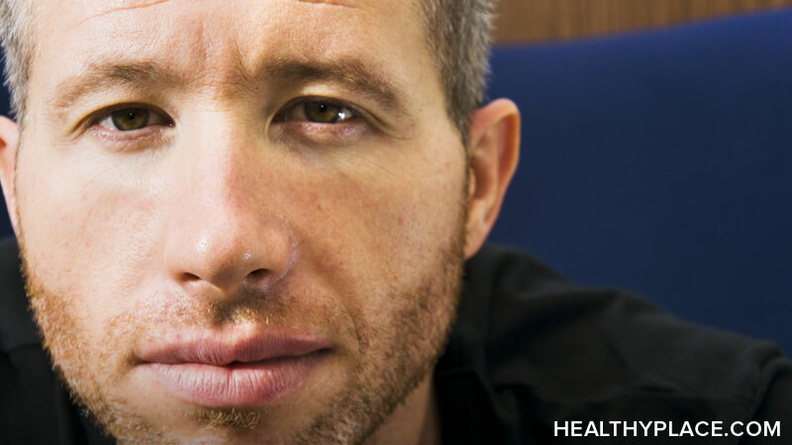Debunking the Myth of Mental Weakness in PTSD Sufferers

One of the biggest myths about posttraumatic stress disorder (PTSD) is that those who have PTSD have a mental weakness. I understand why people think that way. When I was plagued with flashbacks, nightmares and disruptive thoughts about my past trauma, I believed that was a sign of my mental weakness. But it is a myth that people with PTSD have mental weakness. As a matter of fact, we are some of the strongest people I know.
Is PTSD a Sign of Mental Weakness?
The thought that someone who has PTSD is mentally weak is easy to understand. After all, not all people who suffer a traumatic experience will go on to develop PTSD. I know there are many people who have suffered more devastating traumas than those I suffered, and they were able to heal from them without developing the symptoms of PTSD.
So, why me? Why were others able to get over it, and I'm not? Are they mentally stronger and more resilient than I am? It's questions like those that perpetuate the myth of mental weakness.
The truth is, there are also those who have been through what would seem to be far less traumatic experiences than mine who also develop PTSD. While it seems like it should be the bigger the trauma, the bigger the chance for PTSD, it doesn't work that way, and mental weakness doesn't play a part in who gets it.
If Not Mental Weakness, Then What Are the Risk Factors for Developing PTSD?
There are factors that do play a part in who develops PTSD following a traumatic event though. The Mayo Clinic1 cites these as a few of the factors that can contribute to the development of PTSD:
- Experiencing intense or long-lasting trauma
- Having experienced other trauma earlier in life, including childhood abuse or neglect
- Having a job that increases your risk of being exposed to traumatic events, such as military personnel and first responders
- Having other mental health problems, such as anxiety or depression
- Lacking a good support system of family and friends
- Having biological (blood) relatives with mental health problems, including PTSD or depression
None of these factors have anything to do with mental strength or weakness. It's important for those of us who suffer from PTSD, or those of us who have a loved one that does, to remember that.
Denying the Myth about PTSD: It's No Mental Weakness
 I know that it is easy for me to get down on myself when PTSD symptoms bubble up. When I am experiencing negative memories, or something triggers my hypervigilance, my first thought is often, "Why can't I just get over this? I have been through therapy, am very self-aware, and I take medication, what is wrong with me?"
I know that it is easy for me to get down on myself when PTSD symptoms bubble up. When I am experiencing negative memories, or something triggers my hypervigilance, my first thought is often, "Why can't I just get over this? I have been through therapy, am very self-aware, and I take medication, what is wrong with me?"
It makes me feel weak and unstable. That's why it's important for me to tell myself the truth about PTSD. It is a mental condition. It is my body and brain reacting to something that happened to me, not something that is caused by weakness on my part. As a matter of fact, I am strong for living through the trauma and making to the other side of it. I am strong for seeking support, and accepting help. I am strong because I am a survivor.
Remembering those things is what helps me get through the tough times, when symptoms come up.
If you are dealing with the symptoms of PTSD, try telling yourself the truth. You are strong, you are a survivor, you are past the trauma. This, along with the proper support, will keep you from falling prey to the myth of mental weakness in those with PTSD.
Sources
1 Post-traumatic stress disorder (PTSD). (2014, April 15). Retrieved October 25, 2015.
Read more about Jami and her recovery on Facebook, on Twitter, on Google+, and on her blog.
APA Reference
DeLoe, J.
(2015, October 25). Debunking the Myth of Mental Weakness in PTSD Sufferers, HealthyPlace. Retrieved
on 2026, January 1 from https://www.healthyplace.com/blogs/traumaptsdblog/2015/10/debunking-the-myth-of-mental-weakness-in-ptsd-sufferers
